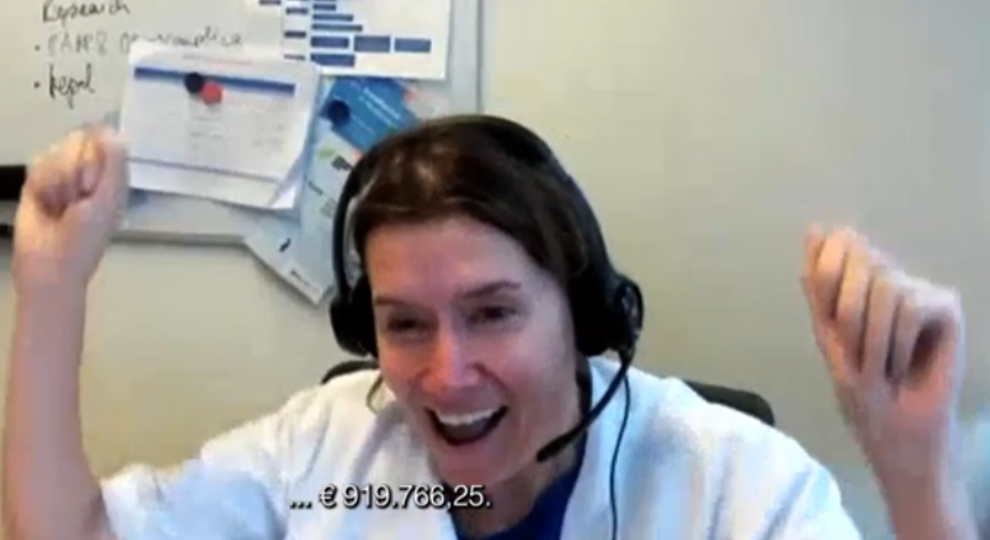Nine new studies at the Netherlands Cancer Institute to receive Dutch Cancer Society funding
21 Dec 2021 16:45
The Dutch Cancer Society (KWF Kankerbestrijding) has awarded grants to nine research teams at the Netherlands Cancer Institute today. The money, amounting to a total of 6.6 million euros, will help them find new leads in their battle against bone cancer, and a less strenuous treatment for breast cancer patients.
Surgeon Frederieke van Duijnhoven is one of the researchers who will be working on a new project. She intends to find out whether it is safe to omit radiotherapy in patients with tumors that disappeared after chemotherapy.
Less invasive
Frederieke van Duijnhoven: “One in three women with breast cancer who have chemotherapy followed with – minor – surgery, don’t show any remaining breast cancer cells. That’s something we should explore, our NKI breast cancer team decided. First we investigated whether surgery could be safely omitted after chemotherapy. Instead, we would limit ourselves to taking biopsies. But in 20% of these cases, a biopsy alone proved insufficient in terms of accuracy. Now we want to find out whether we can omit radiotherapy. Breast irradiation causes side effects in a quarter of these women, such as pain or changes in the shape of the breast. Eventually, we want to be able to consider the pros and cons of a very small risk of recurrence of the illness versus a less invasive treatment together with each of our patients.”
Children and adolescents
Molecular biologist Paul Krimpenfort will be investigating the role of the CDK6 gene in bone cancer: “Bone sarcomas primarily occur in children and adolescents and the illness affects them tremendously. These tumors are debilitating and hard to treat. They are often incurable.”
That’s why he and his team will dive deep into the biology behind this illness, looking for new leads. “We tend to focus on genes that have mutated, but other genes can also play a vital role in this illness. Like the CDK6 gene: while it has not mutated in the bone cancer cells, it does produce more proteins than usual. And patients with a high CDK6 expression tend to have worse prognoses. We want to find out how this works.”
 nl
nl
 Nederlands
Nederlands
